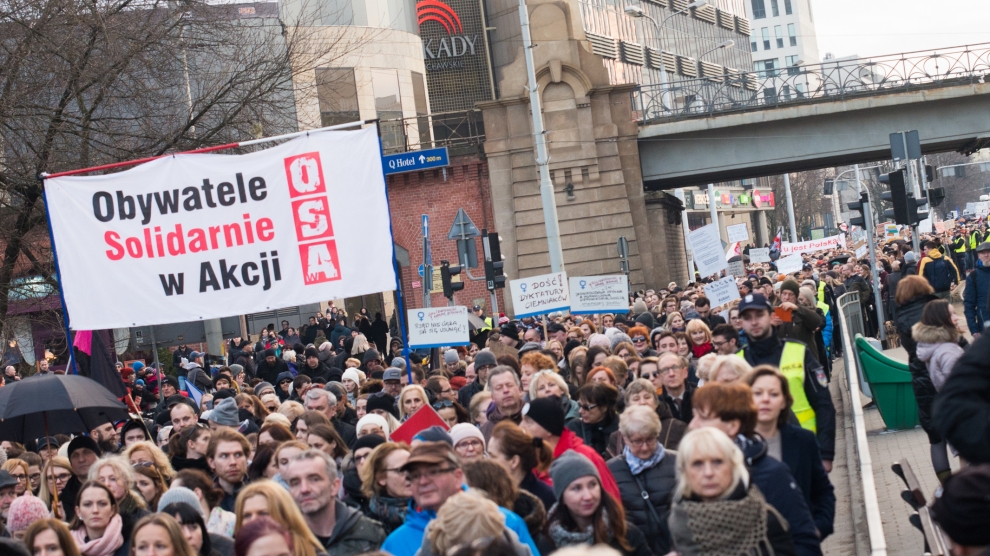The Polish government is targeting women’s rights activists and organisations, putting women’s rights and safety at risk, Human Rights Watch (HRW) said in a report released on February 6. More than two years after the first mass protests against efforts to further restrict abortion access, the ruling Law and Justice (PiS) party is attacking women’s rights activism through raids on groups’ offices, denial of funding, public smear campaigns, and disciplinary action.
The 75-page report, The Breath of the Government on My Back: Attacks on Women’s Rights in Poland, documents how, since coming to power in 2015, the Law and Justice government has targeted women’s rights groups through raids and de-funding, often with little warning and no clear rationale. Human Rights Watch found that government agencies have dragged employees who support women’s rights protests or collaborate with women’s rights groups before disciplinary hearings and threatened their jobs. The government has failed to counter – and sometimes appeared to support – public smear campaigns by ruling party and other politicians and church-backed groups that mischaracterise women’s rights organizations and their work as dangerous to families and so-called “traditional values.”
“Using scare tactics to cripple these groups is just another attempt by the Polish government to roll back women’s rights,” said Hillary Margolis, a women’s rights researcher at HRW. “Activists have targets on their backs simply for helping survivors of abuse or for supporting basic rights to reproductive health and peaceful protest.”
Inaccessibility of government funding has led organizations to cut staff, diminish geographic coverage, and reduce essential services for survivors of domestic and other gender-based violence, leaving significant gaps in shelter, counseling, and legal support, HRW found. Groups conducting workshops on gender-based violence, non-discrimination, and sexual and reproductive health education have also been forced to cut back activities. Specialised services for women and girl survivors of violence and sexual and reproductive health education and information remain woefully inadequate, and well below international and regional standards.
Against a backdrop of historic reluctance in Poland to grant women and girls full reproductive rights, and with one of the most restrictive abortion laws in Europe, the government has worked to further curb reproductive freedom, including through retrogressive action on emergency contraception and support of bills that would virtually ban abortion. The government has blocked provision of comprehensive sexual and reproductive health education. High-level party leaders and civil servants have also publicly discouraged efforts to combat violence against women.
Such actions have met with widespread protest, including through mass demonstrations beginning in October 2016 that became known as #CzarnyProtest (Black Protest) and #StrajkKobiet (Women’s Strike).

